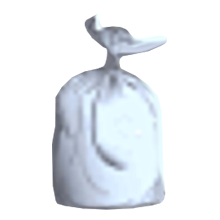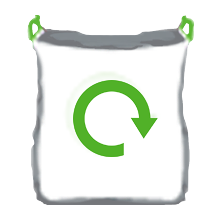Tuesday 15 December 2020
Today sees the launch of the Channel Islands Cancer Report 2020.
The report, which is produced for Guernsey and Jersey by the National Cancer Registration and Analysis Service, provides basic statistics on cancers in Channel Islands residents for the years 2003-2016.
Information is provided about incident (newly diagnosed) cancers and cancer deaths for 21 different cancer types/sites. Rates are presented as three-year rolling averages and, to facilitate comparison, data are provided for England as a whole and the South West region, in addition to the rates for Guernsey and Jersey.
Guernsey figures in the report include cancer deaths in residents of Alderney and incident cancers in residents of Alderney and Sark.
The key findings are as follows:
INCIDENCE
- In the five years to 2016 there were an average of 731 malignant tumours registered per year among Guernsey residents. Almost half of these (48%) were non-melanoma skin cancers
- After non-melanoma skin cancers the top three most common cancers were prostate, breast and colorectal cancers
- When cancer incidence rates are compared between Guernsey and England across all sites, there are no significant differences for 17 types/sites. Where there are differences Guernsey showed significantly:
- LOWER rates for Leukaemia and upper gastro-intestinal cancers; and
- HIGHER rates for Melanoma and non-melanoma skin cancers. Between 2012 and 2016 the yearly average number of newly diagnosed melanoma skin cancers was in the range of 20 to 30 per year.
- When cancer incidence rates are compared between Guernsey and Jerseyacross all sites there are no significant differences for 16 types/sites. Where there are differences Guernsey showed significantly:
- LOWER rates for all-cause cancers, head and neck cancers, and malignant melanoma skin cancers; and
- HIGHER rates for non-melanoma skin cancers and uterine cancers
MORTALITY
- In the five years to 2016 there was an average of 164 deaths due to cancer registered each year in Guernsey
- The three most common causes of cancer death for residents of Guernsey and Jersey were lung, prostate and gastrointestinal cancers
- In comparison to both England and Jersey Guernsey had lower rates of death from breast cancer and lymphoma.
- Guernsey did not show higher mortality rates than England or Jersey for any cancer site/type, however in comparison to the South West region Guernsey had a higher mortality rate for lung cancer.
Jenny Cataroche, Head of Health Intelligence, Public Health Services commented:
'We welcome the publication of the latest Cancer Registration report for the Bailiwick. For the most part the report gives a reassuring picture in terms of the prevalence rates for incident cancers and cancer deaths being in line with, and in some cases lower than, our nearby jurisdictions. One notable exception is for skin cancers, where the major risk factor is UV exposure from sunlight or sunbeds. This reinforces the need for ongoing health promotion activity so that people of all ages can find ways to enjoy the sun safely and, importantly, to be able to recognise the possible signs of a skin cancer and know where to go to get advice.
'We understand that readers will question the long reporting lag which means that the latest report is for data up to 2016. Although reporting lags of up to 2 years are not unusual for cancer data, due to the need to collate and verify data from all around the UK, we are dissatisfied with the four-year lag and plans have been put in place to reduce this in the future.
Having timely data with the minimum reporting lag will put us in the best place to review and respond to any important changes in cancer incidence or death rates for our population.'
Maria Blatchford, Medical Records Manager confirmed that reporting lags arise when clinical coding activity exceeds related staff capacity to process. The staff undertaking this work are specialists and the role has traditionally been hard to recruit to. After a successful project to 'train our own' coders, the Princess Elizabeth Hospital now has this essential skill in place which has in turn has significantly reduced the backlog in diagnostic coding (one of the datasets that is submitted to allow cancers to be registered. The aim is to continuously improve this performance in line with demand.
Emily Davies, Public Health Practitioner, adds:
'In the Bailiwick we have well-established, effective screening programmes for breast, bowel and cervical cancers. Cancer screening helps to detect cancers early, increasing the chance of successful treatment. These programmes are therefore key to our efforts to reduce cancer deaths. Improving access to and participation in cancer screening programmes is a key priority for HSCand we would encourage anyone who receives an invitation for one of these screening programmes to do so without delay.
Public Health Services supports the work of the Health Improvement Commission to encourage behaviour modifications such as smoking cessation, cutting back on alcohol, healthy eating and regular exercise.'
Dr Simon Sebire, Chief Executive, Health Improvement Commission, comments:
'It is estimated that 4 in 10 UK cancer cases are preventable. The Commission's work is critical to advancing local prevention efforts as much of our work focusses on the five leading behavioural and dietary risks of cancer: overweight and obesity, poor diet, low physical activity, alcohol use, and from next year, tobacco use.
Examples of our strategies include the Count 14 campaign which raises awareness of the low risk drinking guidelines of 14 units a week for men and women; extensive collaboration with early years providers and schools to make healthy eating and physical activity the norm from an early age; and our successful weight management programmes such as Football Fans in Training and Counterweight Plus. 2021 will see us expand our work in partnership with retailers, hospitality and States outlets to make it easier to eat healthily when eating out.
However, our surroundings do not always make it easy to be healthy and sustain healthy habits, so for our work to achieve change, it is critical that our government, alongside the wider community also takes steps to create the conditions for healthy living in Guernsey. One way to achieve this is for the States to consider the health implications of its decisions in all areas. This includes planning, education, tax, welfare and infrastructure with the aim of improving our health and avoiding unintended harmful health impacts.'













